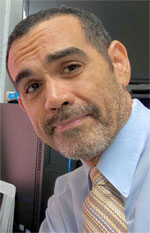 The Role of Managing Editor for the CSA Journal
The Role of Managing Editor for the CSA Journal
By Raymond LAUREANO-ORTIZ, PhD, MBA, PE
The Caribbean Studies Association will soon see the inaugural issue of its peer-reviewed academic journal, Caribbean Conjunctures. The launch of this editorial venture will be marking the association’s 48th anniversary in 2022. The journal will be including research articles, book reviews, arts reviews, and scholarly commentaries in any of five languages: Papiamento, Dutch, French, Spanish, and English.
Supporting the Editor-in-Chief Opal Palmer Adisa since December 2020 in the creation and sustainment of this space for scholarly exchange as Managing Editor has been an enriching and intense journey. Infrastructure, processes, human resources, and communications have been the four strategic areas requiring the attention of this role.
In terms of infrastructure, work has been pursued with The UWI Press, our publisher, to set up and configure an online platform for the project using the Open Journal System, an open-source software developed by a global community of programmers. Training and supporting authors, editors, and peer reviewers in the use of the platform has been key to ensure that the review process is properly documented for decision making and future reference.
The journal’s step-by-step processes have been designed, documented, disseminated, and supported for each essay type (research article, book review, art review, and scholarly commentary). These include submission guidelines for authors and guides for scholars doing peer reviews and for editors performing desk reviews, post-peer review evaluations, and copy editing.
Reaching out to professional networks and online sources to search for, identify, and recruit human resources for the journal’s multiple editorial processes has been a constant. Matching scholars’ interests and availability within their busy schedules to the journal’s needs has been a challenge requiring creative and assertive strategies. These activities have gradually built a dynamic, multilingual, global, and multidisciplinary team of about thirty (30) editors, thirty-five (35) advisers, and over one hundred (100) peer reviewers. This Caribbeanist community of scholars from the various subdisciplines within the humanities and social sciences indeed hails from five continents.
Official communications have been facilitated among the various parties in the editorial process: authors, editors, advisers, peer reviewers and others. These have been pursued through various means including the journal’s platform, email, audioconference, and videoconference. Communications continue being guided to strive for consistency, inclusiveness, respect, and appreciation. The following are several driving principles in exchanges with those involved in the journal:
- Include as many scholars as possible (collectively representing diverse experiences) in the academic discussions sparked by the authors of the journal submissions.
- Acknowledge and appreciate the effort of all those involved, from authors (who have given the journal team the opportunity to consider and debate their work) to editors and reviewers (who have set aside time to provide their feedback).
- Provide as much constructive feedback as possible to all authors, including those whose submissions are not selected for immediate publication, to assist in strengthening the contents (the topics, the methodologies, the theoretical frameworks, and the findings and insights) and the eventual, effective dissemination of research and knowledge.
The role as Managing Editor has been a window into further understanding the fascinating dynamics of life across the Caribbean region, its diaspora, and the worldwide community of scholars that focuses on this geography. Caribbean Conjunctures will hopefully contribute to an increasingly pan Caribbean or pan Greater Caribbean perspective. Lessons learned from this first editorial cycle should be informing the upcoming group of editors in continuing the path towards the more agile, inclusive, and accessible space envisioned by the general CSA membership and, especially, the journal founders – former CSA President Tavis Jules, key collaborators Meagan Sylvester (CSA Newsletter Editor) and Chenzira Davis-Kahina (CSA Vice President), and the rest of the former CSA Journal Taskforce.
Raymond LAUREANO-ORTIZ is a Puerto Rico-based engineer, management consultant, and historian with a PhD in Puerto Rico & Caribbean History. His PhD dissertation on the history of Puerto Rico’s international relations in the 1980s and 1990s received an Honorable Mention for the Caribbean Studies Association’s Best Dissertation Award in 2018. His research work has been included in academic publications from Puerto Rico, Haiti, Cuba, Martinique, France, Germany, and Argentina.
He is currently associated as a researcher to the Josef Korbel School of International Studies (University of Denver) and the Greater Caribbean Workgroup at CLACSO (Latin American Council of Social Sciences). He is a faculty member at the Center for Advanced Studies on Puerto Rico and the Caribbean. In addition, he is currently Vice President of the Association of Caribbean Historians and an Executive Council Member for the Caribbean Studies Association. Until recently, he was Chair/President of the UK Society for Caribbean Studies and Secretary of the Puerto Rican Studies Section of the Latin American Studies Association.
For more details on his profile, see https://raymondlaureanoortiz.academia.edu.
